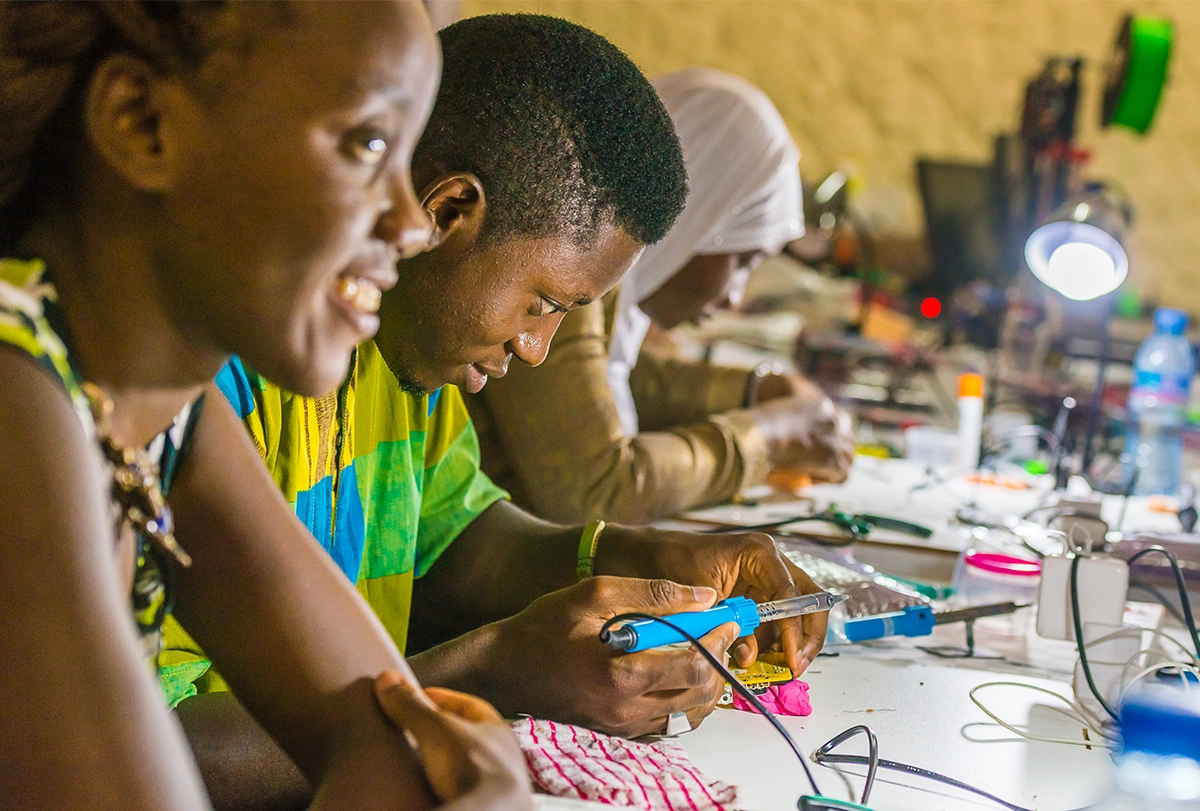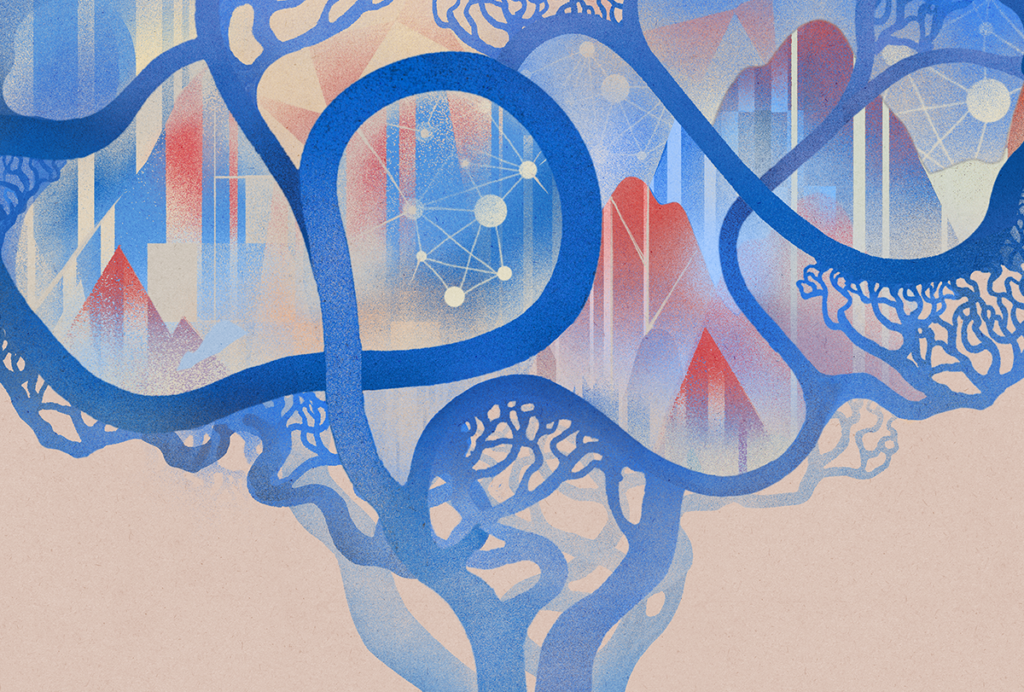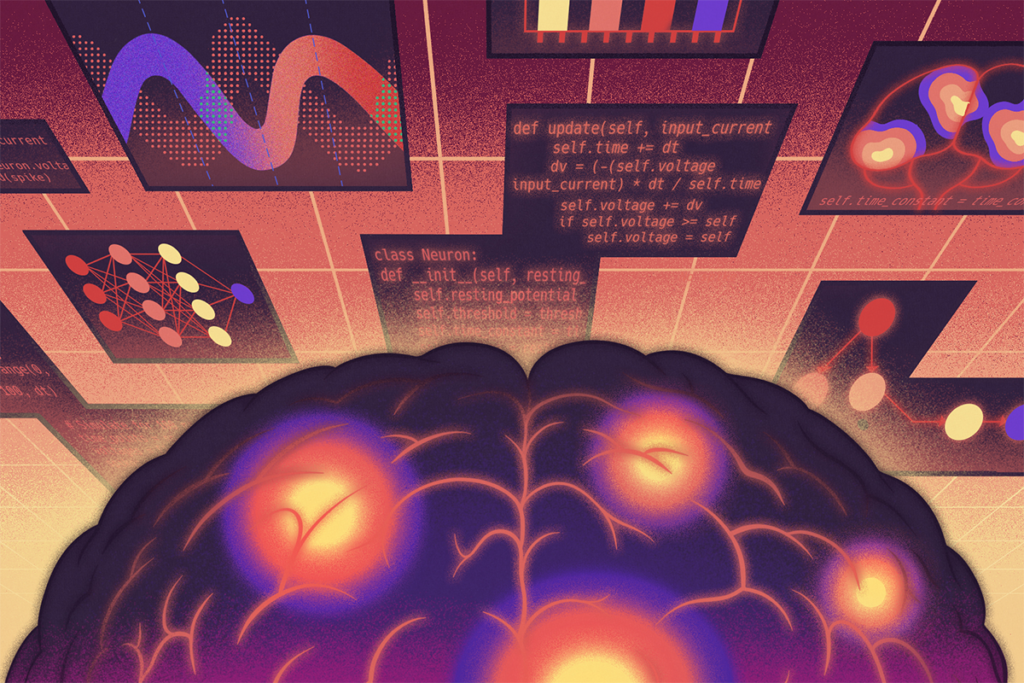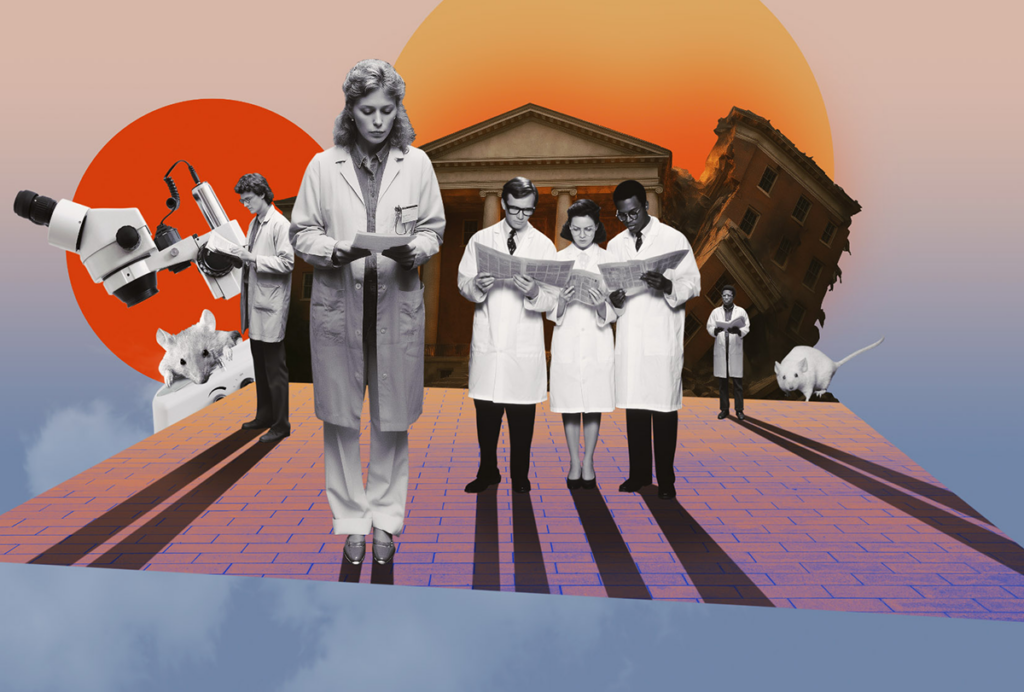The first known description of cortical structures came from a nearly 5,000-year-old African text—and the continent provides unique opportunities to accelerate neuroscience today as well, with its significant human genetic diversity; diverse ecosystems, flora and fauna; and access to a unique clinical population. However, myriad hurdles stifle African neuroscientists, curbing the capacity to capitalize on these opportunities and, by extension, curtailing Africa’s potential to spearhead solutions to some of the most pressing global challenges in neuroscience.
Growing up in Yobe State, Nigeria, I was inspired to study neuroscience after witnessing profound misunderstandings surrounding neurological diseases. But limitations in research infrastructure and developmental pathways for neuroscience in Africa drove me to pursue advanced studies in the United Kingdom. I now lead research at the University of Sussex Neuroscience Unit, exploring what cells from Indigenous Africans reveal about dementia. Inspired by the collaborative spirit, advanced resources and dynamism I have experienced abroad, I am now committed to building a vibrant neuroscience ecosystem in Nigeria and to enhancing Africa’s presence on the global neuroscience stage.
To address barriers in African neuroscience, I have led numerous research studies and outreach initiatives over the past decade as the outreach coordinator for Teaching and Research in Natural Sciences for Development in Africa (TReND)—a nonprofit organization dedicated to promoting neuroscience on the continent. In one of these studies, my team analyzed thousands of articles published over 20 years from African labs, identifying Egypt (28 percent) and South Africa (23 percent) as the powerhouses for the field, followed by Nigeria (11 percent), Morocco (8 percent) and Tunisia (7 percent). Our research highlighted a critical problem across the continent: a widespread deficiency in sophisticated research infrastructure and in the availability of genetically tractable model systems, both of which are essential for groundbreaking discoveries. Apart from a few centers, such as the U.K.-funded MRC Unit in The Gambia, we found that less than a quarter of neuroscience studies in Africa have used advanced techniques such as fluorescence microscopy, Western blotting or quantitative PCR, or have employed genetically tractable model systems. Although some institutions can perform these advanced techniques, a critical gap in the maintenance of this equipment and a lack of well-trained staff to operate it severely hampers its sustainable use.
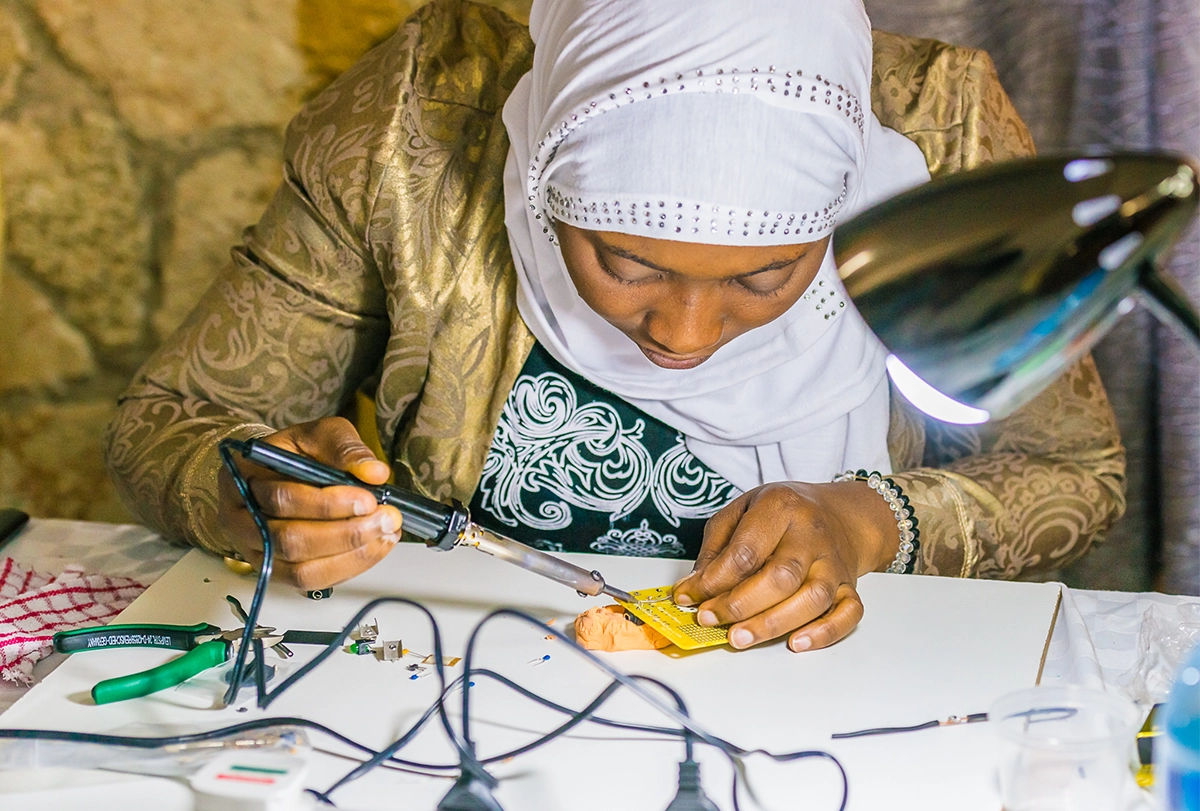
Local and international funding initiatives, including the TETFund in Nigeria, the International Society for Neurochemistry, the International Brain Research Organization and The World Academy of Sciences, are helping to address these barriers by enabling dozens of African neuroscientists to enhance their expertise through brief lab visits abroad. Yet the absence of a solid neuroscience research framework back home turns these skills into untapped potential, unable to flourish or be passed on.
S
urmounting infrastructure challenges is only the beginning; a gaping void in neuroscience education and training looms large across Africa. Currently, the continent boasts only one dedicated neuroscience institute, at the University of Cape Town, and few structured neuroscience education programs. The University of Maiduguri in Nigeria recently established the country’s first master of science program in neuroscience. Most other training programs, such as those supported by the International Brain Research Organization, the International Society for Neurochemistry, the Simons Foundation and others, are short-term. (The Simons Foundation also funds The Transmitter.) TReND has significantly influenced training, particularly in insect and computational neuroscience, since 2011 by organizing one- to three-week-long summer schools. The expansion of dedicated neuroscience programs, in tandem with existing short courses, would help foster the development of local leaders in the field who can drive scientific advancements from within.Another way to support African neuroscience research is by establishing research hubs, which can serve as models for other institutions. In 2021, I established one such hub, the Biomedical Science Research and Training Centre (BioRTC) at Yobe State University in Nigeria. BioRTC was born from a strategic blend of local commitment and international collaboration, including essential infrastructure, staffing and maintenance support from the government through Yobe State University and critical high-tech equipment from external partners, such as TReND. BioRTC boasts some of Nigeria’s most advanced research equipment, including the country’s only two confocal microscopes. As an open-access core facility, our mission is to equip African scientists, both from within and outside Nigeria, with state-of-the-art tools to spearhead innovative research locally. We also aim to catalyze local and global collaborations that draw talents and funding to nurture a cutting-edge African neuroscience ecosystem.
BioRTC initiatives are focused on research, training and open science. On the research side, we are pioneering the development of novel local-animal models from our diverse fauna and establishing human-induced pluripotent stem cell (iPSC) lines from the Indigenous population to advance research on dementia and other conditions. Our open-access model ensures these iPSCs serve as a versatile resource for modeling a spectrum of diseases within African genetic backgrounds—an approach that will ultimately advance drug discovery and translational research.
We also host regular workshops that draw participants from across Africa, and that emphasize hands-on experience in bioimaging and open-hardware neuroscience applications. To date, BioRTC has trained more than 250 scientists from six African countries, while also building a robust local research capacity at Yobe State University.
In a region where advanced technology often comes at a prohibitive cost, we champion open science. Our staff, trained in the U.K. and Germany, use open-science technologies, such as 3D printing, to manufacture low-cost equipment and fix and upcycle existing equipment, thereby democratizing access to sophisticated scientific tools. We welcome researchers from both within and outside Nigeria, and we host more than a dozen visiting researchers from different institutions to complete or undertake a portion of their M.Sc. or Ph.D. research within our center.
As a young center, we continue to seek further resources and partnerships to expand our impact. Eventually, hubs like BioRTC across Africa would offer incredible opportunities for connecting people, resources and ideas to advance African neuroscience on a global stage.
